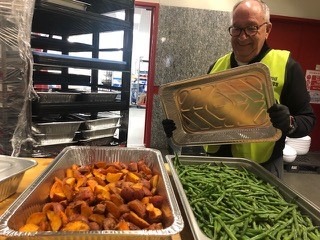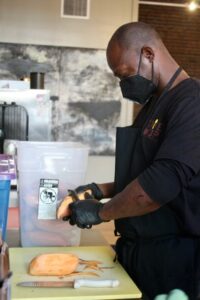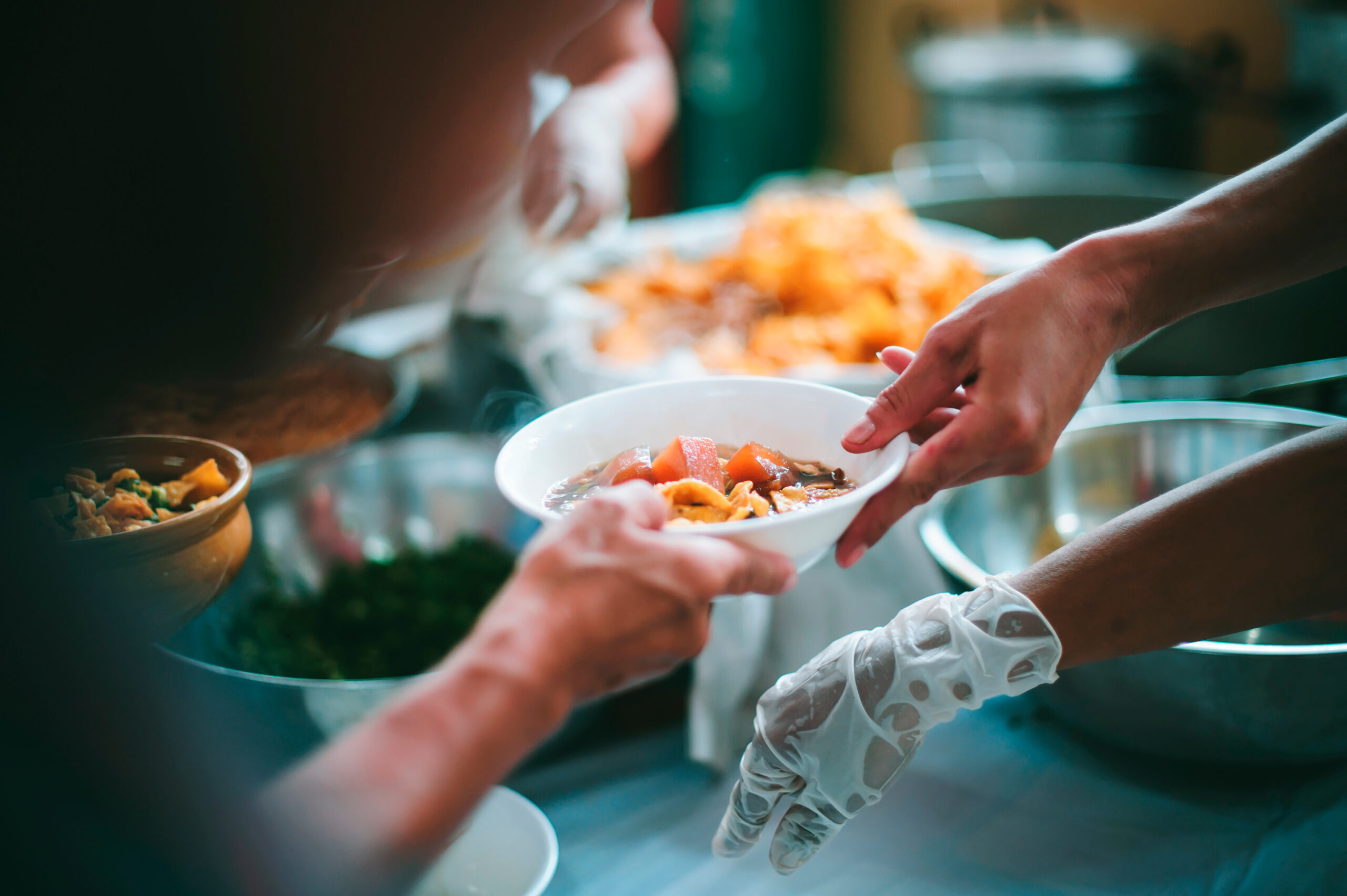What the Food Donation Improvement Act Means for Events
A new federal law could make it easier to donate unused food from a conference to those in need. An estimated 40% of the food produced in the U.S. ultimately goes to waste. However, many potential food donors, including event planners, catering services and other industry professionals, have been reluctant to give due to the misconception that they might be held responsible if a recipient were to become ill after consuming donated food.
To further support efforts surrounding reducing, and possibly eliminating food waste, President Joe Biden in early January signed the Food Donation Improvement Act into law with unanimous, bipartisan support in the Senate and House. The bill was built on the 1996 Emerson Good Samaritan Act by expanding civil and criminal liability protection for food donors and could remove any lingering hesitancy around donations.
Socially conscious meeting professionals are not the only ones working toward solutions and finding ways to actively engage in the effort to curb food waste and help those in need. In fact, the multifaceted endeavor is being embraced throughout the hospitality industry at every level.
Planning it Forward

Second Serving—Houston’s only perishable food rescue organization with the mission of alleviating hunger while reducing food waste across the city—is setting the standard for food rescue and subsequent distribution to shelters, nonprofits and low-income housing sites.
“We want the food to be handled properly and safely,” says Second Servings founder and President Barbara Bronstein. “Our drivers are food safety-certified so they know how to handle food properly.” Planners hosting in Houston can coordinate with the venue and notify them of their intentions while providing guests with table cards to highlight their efforts. Founded in 2015, Second Serving has since rescued over 10,000,000 pounds of food.
Hilton Americas and Four Seasons are just some of the partners working with Second Serving to curb hunger and food insecurity, “along with other leaders in their category,” she says.
In addition, Bronstein suggests that planners take a proactive approach to identify hospitality partners that are onboard with the effort of food rescue. “I would look into the venue’s sustainability and green meeting information,” she says. The George R. Brown Convention Center, for example, lists the food and beverage program they have with Second Servings to rescue any unserved food from an event.
Confronting Food Insecurity Hands-On
Businesses have coordinated with Second Servings in the past to create events to provide those in need with a dignified shopping experience. “We started a program last year that was geared toward fighting inflation,” Bronstein explains. “It’s called the grocery pop-up store.” Rescued groceries are taken to a community center and are put on display by trained volunteers for individuals to choose from. “People can get healthy food without going to a food bank or be handed a bag of dry goods from a pantry.”
While inflation is an issue that impacts every aspect of the national economy, some have been hit harder than others. “People on fixed incomes such as seniors, veterans and the disabled, they’re being squeezed by every aspect of life,” Bronstein says, pointing to the increased costs in transportation, rent and food. “The cost of a dozen eggs has more than doubled in less than a years’ time,” she says.
The majority of food provided at the pop-ups is collected from supermarkets. “I think it’s a very meaningful community service activity that would help open people’s eyes to not only the need that’s in the community but also the amount of food that goes to waste,” she says. Bronstein mentioned one company that found working at a pop-up to be such a valuable teambuilding exercise that they coordinated with Second Servings to participate and sponsor a pop-up once quarterly. “There are people in need that others don’t realize, who can really use the food and to throw it away would be a shame,” says Bronstein.
A Community Kitchen for Change
Meanwhile in Portland, Oregon, the chefs and staff of the food service nonprofit, Stone Soup PDX, are hard at work providing workforce development and hands-on culinary training for at-risk individuals facing homelessness. Stone Soup works closely with case managers at local social service agencies who actively refer clients to the program and help conduct community outreach.

The curriculum of becoming a chef comes with a wide set of job skills including crafting resumes and cover letters, working as a team, learning self-care, interview skills, conflict resolution, creating an elevator speech and financial literacy. The 12-week program titled, “Workforce and Interpersonal Skills Education” (WISE), teaches participants about food production skills, which allows them to obtain a Food Handler Certification through classes that are small and provide one-on-one coaching.
“We’re a very small operation,” says Stone Soup Interim Executive Director Aaron Babbie. “We’re reaching out to folks who we would consider to be housing insecure and in need of a fresh start in their careers.”
The culinary training program that launched in 2019 began as a full-service restaurant, which developed into a “workforce development program,” says Babbie, adding that the program was launched with the support of the Seattle-based FareStart that mirrors the mission of Stone Soup in combating food insecurity, providing job training and consulting other organizations in building similar programs.
The initial six weeks consists of foundational training where participants learn the ins and outs of food safety, product training on various food items and categories and other fundamental skills, such as how to properly handle a knife. However, the program also helps participants to successfully enter and maneuver throughout the workforce landscape.
“Everybody’s process and goals are a little different, but we try to give them all a base of training, says Outreach and Workforce Development Manager Connor Braddock.
Past program participants have moved on to careers as culinary professionals employed by big names in the industry including the Hyatt Regency Portland At The Oregon Convention Center and Tartuca Portland—a local favorite specializing in fine Italian dining. “When you look at the employer side,” Babbie says, “hospitality and food service are industries that really need folks.”
Stone Soup PDX also offers pop-up kitchens that can accommodate up to 10 people, making it a great option for larger events that may include smaller breakouts groups of attendees. “We have a catering menu, but we’re also very flexible in being able to expand the offerings,” says Babbie.
Industry Leaders Pitch In
Marriott Hotels recently published its 2025 Sustainability and Social Impact Goals, that outlines the organization’s strategy of reducing waste-to-landfill by 45% and food waste by 50% from the company’s 2016 baseline. Marriott’s program to measure and reduce food waste first took shape in 2021 through a collaboration with World Wildlife Fund (WWF) and other industry partners supporting the finalization and publication of the Hotel Waste Measurement Methodology (HWMM). The program was first implemented in 2022 and included engaging waste consultants to create innovative food waste reduction practices and programs at all the brand’s properties across the globe.
To set the food waste reduction program in motion and ensure that all aspects run smoothly across the organization, Marriott provides company associates with educational resources such as webinars and in-person training sessions . One of Marriott’s first educational programs took place at the Renaissance Cancun Resort & Marina in Cancun, Mexico and focused on demonstrating the progress of strategies and actions that are included in the company’s Waste Management Program. Additionally, the training was used to “introduce proposals to further improve waste collection, compaction, storage and disposal,” according to a report published by Marriott.
In Hong Kong, Marriott partnered with the city’s first organic resources recovery center, O-Park, which specializes in converting food waste into electricity. The collaboration led to diverting roughly 70,000 lbs. of waste from being disposed of in landfills from September to December, 2021. The Chefs with Compassion’s #67000litres Challenge was embraced by 10 Protea Hotels by Marriott in South Africa to raise awareness of the excessive volume of food that’s wasted annually in the region. The challenge calls for businesses and individuals with access to a kitchen to dedicate 67 minutes on Mandela Day to help raise awareness. Protea kitchens donated over 8,000 liters of soup to communities in need across the country.




